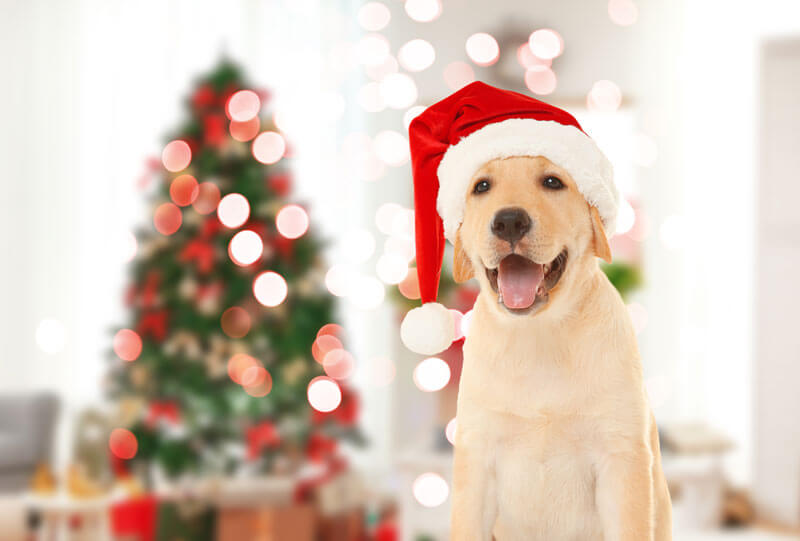1. Make sure decorations aren’t a hazard
All the glitter and sparkle we add to our homes looks attractive to our curious pets as well as us. Cats in particular may want to play with hanging decorations and get stuck in to the tinsel, so make sure these are out of their reach. A mouth full of plastic or glass decorations can cause some unpleasant problems in the digestive tract, and tinsel can easily get wrapped around them whilst they play.
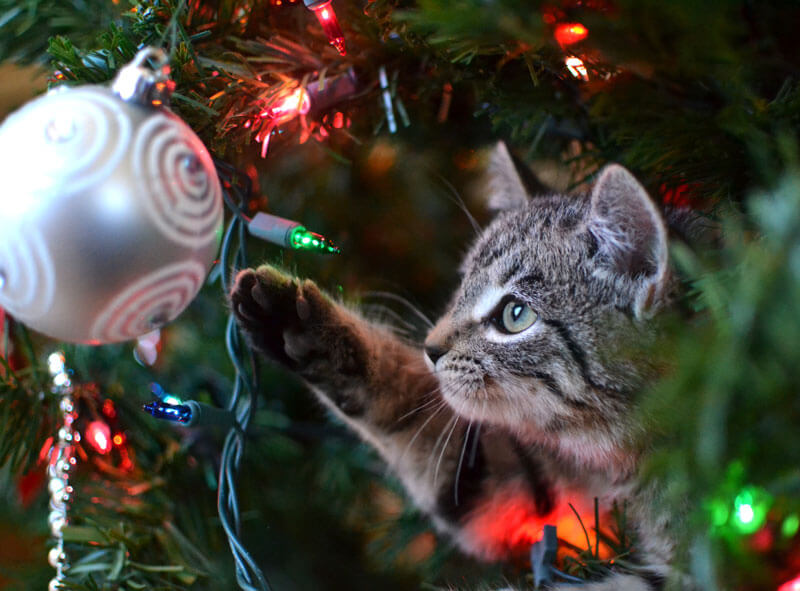
If you’re making or hanging any edible decorations, make sure they’re on a tree in a room your pet doesn’t go in to. The temptation to get these may well be overwhelming! In addition to the destruction caused by animals jumping up your beautifully decorated tree, many contain substances that can make your pet quite ill including salt dough and chocolate.
2. Keep cables for fairy lights safe
All of our indoor pets including rabbits, dogs and cats may chew on new wires that appear in dark corners, so make sure they’re out of reach. If that’s not possible, add a cable guard to make them safe. These can be bought quite cheaply online or in electrical stores.
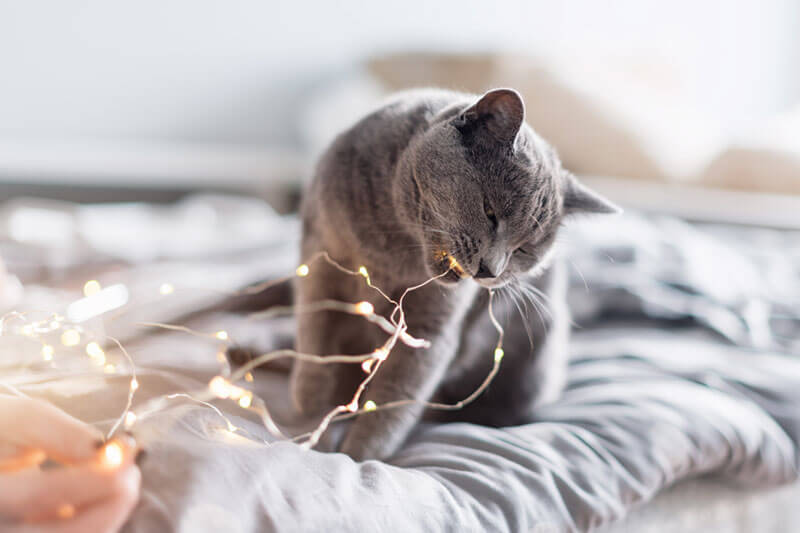
3. Be aware of potential seasonal poisons
Much of the foliage and some of the plants we traditionally decorate our houses with at Christmas can be poisonous to our pets. The list includes citrus fruits, flowers such as poinsettias, amaryllis and lilies as well as holly, pine and mistletoe can cause harm if they eat them. Make sure they’re out of reach or in a room your pet doesn’t have access to if you’re including them in your decorating. Regularly vacuum up any pine needles that fall, including the plastic variety.
Some foods are delicious to us but toxic to our pets. Chocolate, anything with raisins in such as mince pies and Christmas cake, onions, broccoli, cauliflower, peppers, avocado, coffee, nutmeg, garlic and alcohol can all cause harm. If you’re cooking birds such as turkey, chicken, duck or goose don’t be tempted to give the bones to your pet as a festive treat. These can shatter in their mouths and cause lots of painful problems. No one wants an emergency trip to the vet chucked in to their festive mix!
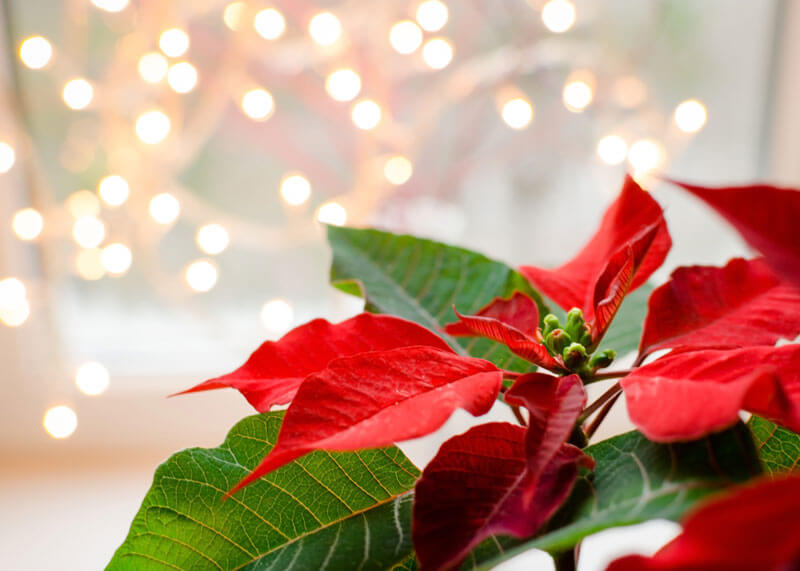
If you’re giving presents that include food, don’t put these under the tree. We can’t smell what’s inside, but our super-sleuth pets can and they may well be eaten along with wrapping paper and ribbons.
Our pets aren’t daft and some are better than others at waiting for the moment our back is turned to steal delicious treats to eat. Be aware of their behaviour over Christmas, and watch for signs they might have eaten something they shouldn’t. Symptoms to look out for include behavioural changes, laboured breathing, and an upset stomach – vomiting, diarrhoea or both.
Call us if you have any concerns, and remember that members of our VIP preventative healthcare club get free and unlimited consultations* with a vet throughout the year, so if you’re considering joining, now might be a good time!
*Please note that out of hours appointments aren’t included in this and are chargeable.
4. Minimise stress and give them a quiet place to go
If you’re entertaining guests at home and it’s going to get busy and noisy, make an area in the home where your pet can go to get away from it all. Put their bed in a quiet room and include their favourite toys and a chew. If you have doors and gates that need to stay closed, let your guests know what you need them to do to keep your pet safe.
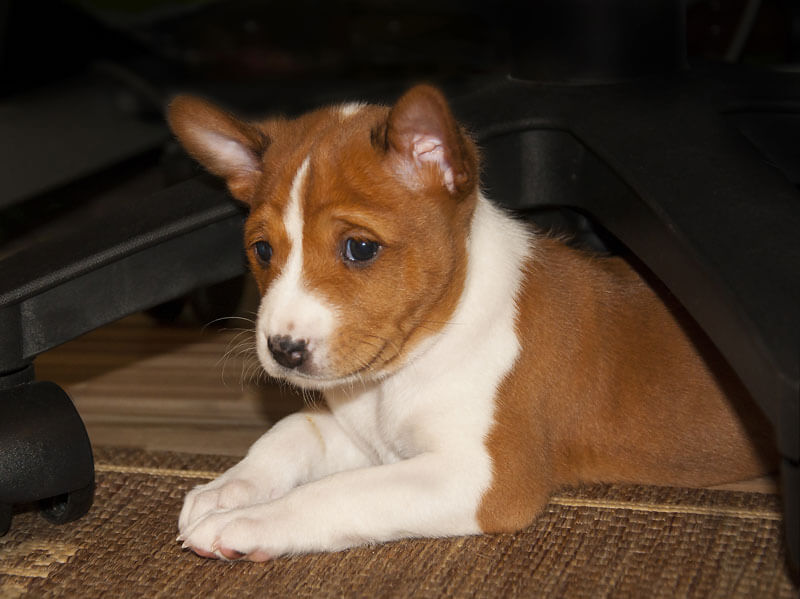
Dogs will really benefit from a good walk before things get crazy at home or if you’re taking them along to visit people. They’ll feel much calmer and more content if they’ve had some exercise, and trying to keep up with normal exercise and food routines as much as possible will make the season much less stressful for them.
Unfortunately for nervous pets, fireworks aren’t just around on November 5th any more. If firework fear is an issue for your pet, make sure you keep them in if it gets noisy, close curtains, put a radio or the TV on to block some of the noise, and give them a safe place to hide. If their anxiety can’t be managed in this way, make an appointment with us to discuss how we can support them. We can give you a management plan and discuss the use of plug-ins and food supplements that mimic calming pheromones that can really help them.
5. Make Christmas fun for furry family members too!
Reading this does make it sound as if all the fun is sucked out of Christmas for our four-legged friends, but it doesn’t need to be. You could take dogs on lovely family walks to new areas, buy them safe toys as gifts, and do some fun things like make a treasure trail from healthy treats and chews. You could even try making some for them! There are lots of other recipes online for healthy treats and snacks, so let your creativity flow and get everyone involved in making it a safe, healthy and happy time for the whole family.
